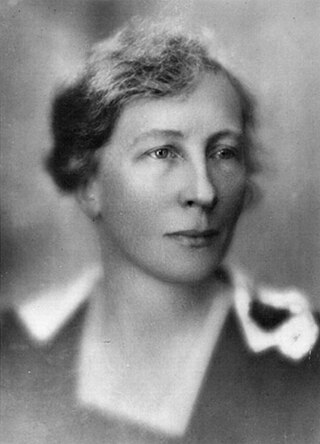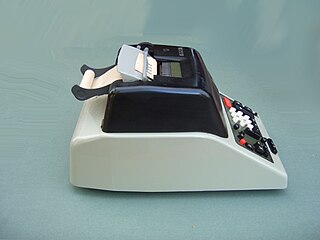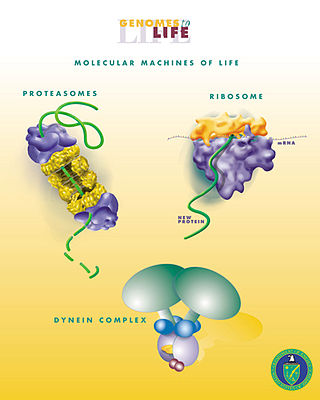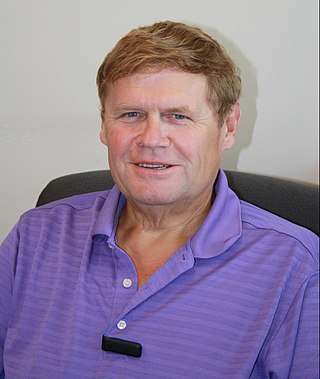Related Research Articles

Lillian Evelyn Gilbreth was an American psychologist, industrial engineer, consultant, and educator who was an early pioneer in applying psychology to time-and-motion studies. She was described in the 1940s as "a genius in the art of living." Gilbreth, one of the first female engineers to earn a Ph.D., is considered to be the first industrial/organizational psychologist. She and her husband, Frank Bunker Gilbreth, were efficiency experts who contributed to the study of industrial engineering, especially in the areas of motion study and human factors. Cheaper by the Dozen (1948) and Belles on Their Toes (1950), written by two of their children tell the story of their family life and describe how time-and-motion studies were applied to the organization and daily activities of their large family. Both books were later made into feature films.

Industrial design is a process of design applied to physical products that are to be manufactured by mass production. It is the creative act of determining and defining a product's form and features, which takes place in advance of the manufacture or production of the product. Industrial manufacture consists of pre-determined, standardized and repeated, often automated, acts of replication, while craft-based design is a process or approach in which the form of the product is determined personally by the product's creator largely concurrent with the act of its production.

Nancy Jane Currie-Gregg is an American engineer, United States Army officer and a NASA astronaut. Currie-Gregg has served in the United States Army for over 22 years and holds the rank of colonel. With NASA, she has participated in four space shuttle missions: STS-57, STS-70, STS-88, and STS-109, accruing 1,000 hours in space. She currently holds an appointment as a professor of practice in the Department of Industrial & Systems Engineering at Texas A&M University.
M. M. Ayoub is an Egyptian retired P.W. Horn Professor of Industrial Engineering at Texas Tech University. He is a pioneer in the field of ergonomics, specifically relating to the application of mechanics to manual material handling.

Biological engineering or bioengineering is the application of principles of biology and the tools of engineering to create usable, tangible, economically viable products. Biological engineering employs knowledge and expertise from a number of pure and applied sciences, such as mass and heat transfer, kinetics, biocatalysts, biomechanics, bioinformatics, separation and purification processes, bioreactor design, surface science, fluid mechanics, thermodynamics, and polymer science. It is used in the design of medical devices, diagnostic equipment, biocompatible materials, renewable energy, ecological engineering, agricultural engineering, process engineering and catalysis, and other areas that improve the living standards of societies.

Industrial engineering is an engineering profession that is concerned with the optimization of complex processes, systems, or organizations by developing, improving and implementing integrated systems of people, money, knowledge, information and equipment. Industrial engineering is central to manufacturing operations.
Anthony D. Andre is a researcher, practitioner, and academic in the fields of human factors, ergonomics, usability and product design. He is the founding principal of Interface Analysis Associates, an international human factors and ergonomics consultancy. Andre pioneered the behavioral approach to ergonomics which included behavior modification and computer skill development as its basis, in direct opposition to common product-based approaches. He is a founding member and adjunct professor of the HF/E Graduate Program at San Jose State University. He founded the International Conference on Human Factors and Ergonomics in Health Care, co-created the Ergo-X conference, managed the ergonomic content for several of the annual California Association of Rehabilitation and Re-employment Professionals (CARRP) conferences, and recently produced, hosted, and presented a COVID-19 ergonomics virtual summit on how to work/school from home more safely and comfortably. He has served as president of the Human Factors and Ergonomics Society. Andre is a Certified Professional Ergonomist (CPE), recognized by the Board of Certification of Professional Ergonomists (BCPE).

Human factors and ergonomics is the application of psychological and physiological principles to the engineering and design of products, processes, and systems. Primary goals of human factors engineering are to reduce human error, increase productivity and system availability, and enhance safety, health and comfort with a specific focus on the interaction between the human and equipment.

Alpha Pi Mu (ΑΠΜ) is an American honor society for Industrial and Systems Engineering students. All chapters are based in the United States, with the exception of one university in Puerto Rico which is an unincorporated territory of the United States.
Donald H. (Don) Liles was an American engineer, Professor of Industrial Engineering at the University of Texas at Arlington, known for his seminal work on enterprise engineering.
Neville Moray was a British-born Canadian psychologist. He served as an academic and professor at the Department of Psychology of the University of Surrey, known from his 1959 research of the cocktail party effect.

The Institute of Industrial and Systems Engineers (IISE), formerly the Institute of Industrial Engineers, is a professional society dedicated solely to the support of the industrial engineering profession and individuals involved with improving quality and productivity.

Gavriel Salvendy is a pioneer in the field of human factors and ergonomics. In 1990, he was elected a member of the National Academy of Engineering (NAE) for fundamental contributions to and professional leadership in human, physical and cognitive aspects of engineering systems.
Orval Leroy Lewis was an American mechanical and chemical engineer, and business executive, who served as president of the American Society of Mechanical Engineers (ASME) in the year 1978–79.
Abigail Jane Sellen is a Canadian cognitive scientist, industrial engineer, and computer scientist who works for Microsoft Research in Cambridge. She is also an honorary professor at the University of Nottingham and University College London.

Peter Adrian Hancock is a British-American scientist of human factors and ergonomics, author, and expert witness. He is a Provost Distinguished Research Professor in the Department of Psychology and the Institute for Simulation and Training, as well as the Department of Civil and Environmental Engineering and the Department of Industrial Engineering and Management Systems at the University of Central Florida. He is the research director of the Minds in Technology−Machines in Thought research laboratory at the University of Central Florida.
Nadine Barbara Sarter is a German-American industrial engineer interested in multimodal interaction, touch user interfaces, aircraft cockpit controls, and the ergonomics of human-machine interfaces. She is Richard W. Pew Collegiate Professor of Industrial & Operations Engineering at the University of Michigan, where she directs the Center for Ergonomics and is also affiliated with the Robotics Institute and Department of Aerospace Engineering.
Ken Parsons is an English engineer, now emeritus professor of environmental ergonomics at Loughborough University.
Fereydoun 'Fred' Aghazadeh is a Professor in the Industrial Engineering Program and Georgia Gulf Distinguished Professor of Engineering at Louisiana State University.
Aura C. Matias is a Filipino industrial engineer. Her academic research concerns ergonomics and human–computer interaction; she has also applied her expertise in industrial engineering to issues in the society of the Philippines including the quality of water services, and corruption in government agencies. She is a professor of industrial engineering and operations research at the University of the Philippines Diliman, where she is the former dean of engineering and former executive director of the National Engineering Center.
References
- ↑ Chaffin, Don B. at the Library of Congress Nae Authority Files
- ↑ "Don Chaffin". umich.edu. Retrieved May 1, 2017.
- ↑ "Don Chaffin" . Retrieved May 1, 2017.